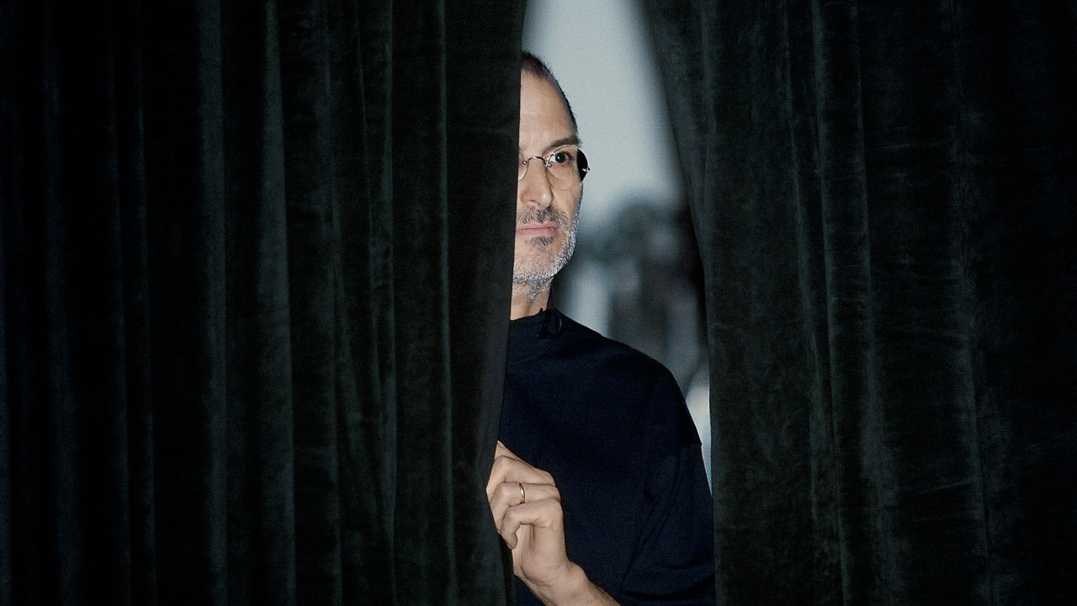Becoming Steve Jobs is the latest biographical book whose main subject is the legendary CEO of Apple, Steve Jobs, it will be published in the next period in various stores in the USA and beyond. Just a few days before his appearance, we have the opportunity to find out some extremely interesting details about the life of the former CEO of the American company, with his interaction with employees, friends and colleagues.
The other day I talked to you about Tim Cook and his desire to donate a portion of his liver to Steve Jobs to help him in the operation done more than a decade ago, and today we have other interesting details. In the book Becoming Steve Jobs, Tim Cook talks about the former CEO of Apple as a warm person whom he met at the beginning of 1998, he being a confident person and passionate about what he does, still having a sentimental side that would includes a larger portion of the character until the moment of death.
"The Steve that I met in early '98 was brash and confident and passionate and all of those things. But there was a soft side of him as well, and that soft side became a larger portion of him over the next 13 years. You'd see that show up in different ways. There were different employees and spouses here that had health issues, and he would go out of his way to turn heaven and earth to make sure they had proper medical attention. He did that in a major way, not in a minor, 'Call me and get back to me if you need my help' kind of way.
According to Cook, Steve Jobs always took care of the sick employees of the Apple company, doing everything in his power to help them benefit from the best medical care available, the medical problems of those around him probably resonating in a certain measure with their own. Moreover, Tim Cook tells the story of the moment when Steve Jobs called his mother telling her to help him convince the current CEO of Apple have a much more active social life, the relationship between the two being extremely close.
Separately from Tim Cook, the book also presents information provided by Eddy Cue, the current senior vice president of the internet services division, stating that Steve Jobs worked constantly until his last days, wanting to be treated like any other normal person , not like a sick one. According to the book, Jobs began to put more emphasis on marketing design and product presentation after the release of the first iPhone, and this helped Apple sell more and more products.
The return of Steve Jobs to the leadership of Apple in the 90s helped to recover the company, but in 2004 Jobs realized that he would not lead the company forever, so he laid the foundations of a succession plan for his position. In this idea, Apple University was founded to help employees learn how to make difficult decisions that have an impact on the entire company, Jobs starting to explain the reasoning behind many decisions made over time.
"Steve cared deeply about the why," says Cook. "The why of the decision. In the younger days I would see him just doing something. But as the days went on he would spend more time with me and with other people explaining why he thought or did something, or why he looked at something in a certain way. This was why he came up with Apple U., so we could train and educate the next generation of leaders by teaching them all we had been through, and how we had made the terrible decisions we made and also how we made the really good ones .”
Although in his youth Jobs made decisions that sometimes seemed crazy and did not explain the rationale behind them, after 2004 he explained almost every important decision and the rationale behind it to help his management team understand their impact and how to act in the future.
This belief in Apple as a special place—as a company as magical, perhaps, as an iPad—was something Steve shared with Cook and was certainly part of the reason he urged the board of directors to sign off on Cook as his successor. "This was a significant common thread we had," says Cook. "I really love Apple, and I do think Apple is here for a bigger reason. There are very few companies like that on the face of the earth anymore."
As part of his succession plan, Steve Jobs installed Tim Cook twice as interim CEO during the periods in which he underwent life-saving operations, and on August 11, 2011, he made the final decision with look at Cook's future. That day Steve Jobs called his friend to announce that he is going to be the next CEO of Apple, the board of directors approving the change two months before the death of the co-founder of the company.
"He says, 'You make all the decisions.' I go, 'Wait. Let me ask you a question.' I tried to pick something that would incite him. So I said, 'You mean that if I review an ad and I like it, it should just run without your okay?' And he laughed and said, 'Well, I hope you'd at least ask me!' I asked him two or three times, 'Are you sure you want to do this?'
Next you will read about how Tim Cook thought Steve Jobs would act as a member of the board of directors, other details being available in the article of the American publication.
Eight weeks after Steve told Cook he was making him CEO, things took a sudden turn for the worse. "I watched a movie with him the Friday before he passed away," Cook remembers. "We watched Remember the Titans [a sentimental football story about an underdog]. I was so surprised he wanted to watch that movie. I was like, 'Are you sure?' Steve was not interested in sports at all. And we watched and we talked about a number of things and I left thinking that he was pretty happy. And then all of a sudden things went to hell that weekend."
















